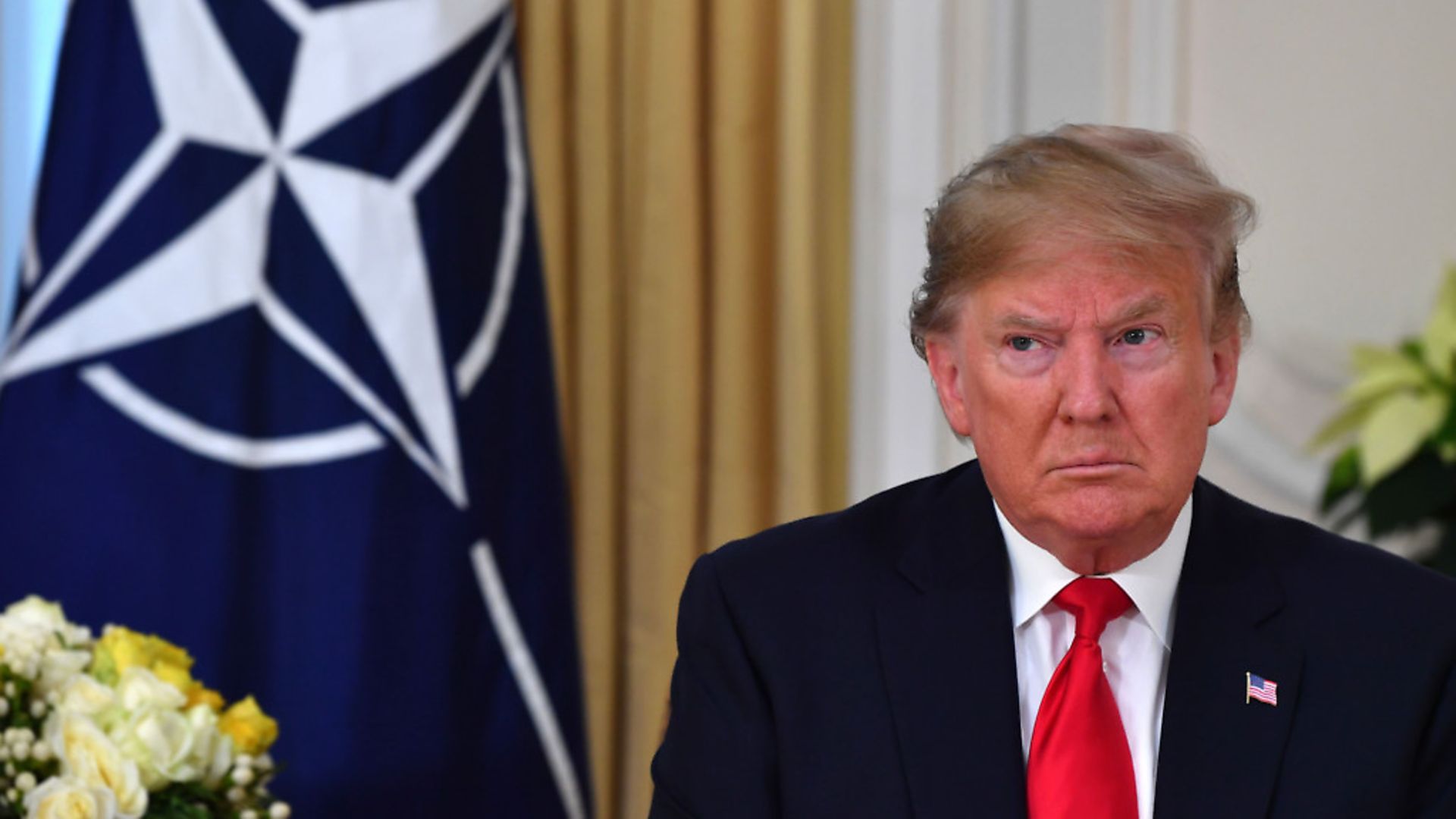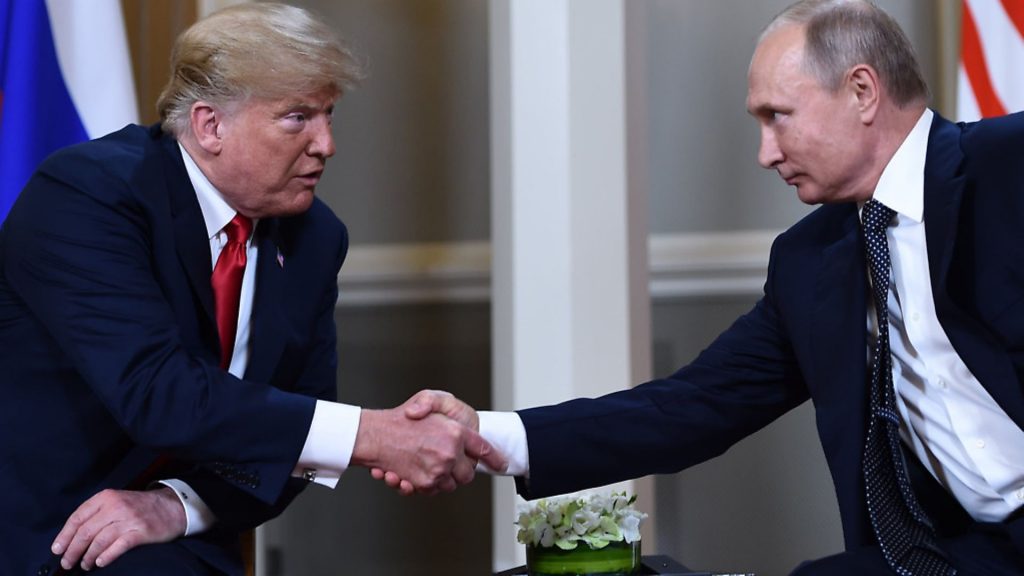
As world leaders gather for Nato’s 70th anniversary summit, ANDREW ADONIS says we must question Britain’s alliance with the ‘worst of America’.

This week’s 70th birthday celebrations for Nato takes our love-hate relationship with Trump to stratospheric levels. For there is no level of inter-continental defence capability, in the sky and the stars, where we do not depend on the same American president whose friendship is the kiss of death.
It could not be more different to the British-American wartime alliance which led to the North Atlantic Treaty of 1949. From the moment Churchill entered Number 10 in May 1940, on the verge of defeat, he courted Roosevelt as he courted no one else in his life apart from Clementine. There were letters, phone calls, emotional appeals, a string of emissaries both ways and, ultimately, an unstinting alliance.
So again after the war. Weeks before his death in April 1945 FDR told Churchill that the US would not stay in Europe for more than two years after the war. The plan was for a deindustrialised and demilitarised Germany, which was no longer a threat to Europe but a big enough buffer, together with Poland and Czechoslovakia, to keep Stalin from dominating the continent.
It didn’t work. Stalin seized and colonised not only Poland and Czechoslovakia but half of Germany too – including Berlin, where only with difficulty could the British and the Americans establish themselves in the western part of the city.
Within months of the defeat of Hitler the Cold War had started and another great British courtship of America began. This time it was Ernest Bevin, Labour’s Churchill, who wooed US emissaries as, with diminishing power, he held out against Stalin’s implacable foreign minister Molotov, who sought to stop the creation of what became West Germany. Molotov wanted, and nearly got, a formally neutral but Soviet-dominated single German state, facilitated by a Truman who thought that might be the least worst option.
The breakthrough came in January 1947 when Truman appointed a new secretary of state, George Marshall, the most brilliant US military strategist of his generation, as army chief of staff to FDR. Marshall and Bevin had six weeks together in the spring of 1947, ironically in Moscow, at the four-power summit to decide what to do about Germany. Marshall was so appalled by Stalin’s megalomania, and so impressed by Bevin’s determination to resist with a credible plan to merge the British and American zones in Germany and turn them into a strong, western state, that he urged Truman to back the Brits.
The result was Marshall Aid, which helped put the British, French and west German economies back on their feet. Stalin responded by blockading Berlin, a bid to evict America from Europe. Marshall and Bevin doubled down. The US and British carried out an 11-month airlift to keep West Berlin open and free. And they signed the North Atlantic Treaty, together with precarious allies including France, which at the time was also in danger of being taken over by a communist government.
The rest, as they say, is history. But it wasn’t inevitable. At every stage, not least the desperately difficult diplomacy after the collapse of the Berlin Wall and the Soviet Union, it took wise American-European leadership to navigate successfully. Since Churchill and Bevin, an insular Britain has often been its own worst enemy. Thatcher sought to block the reunification of a democratic Germany in 1990, and was overridden by Kohl and George Bush senior. But we have been largely in step on the security of Europe, particularly the wise decision to extend Nato and the EU eastwards as Russia temporarily retreated in the 1990s.
We don’t talk about it much, but substantial US and British troops are now stationed and exercising in the three Baltic states, to warn Putin of the west’s determination to resist if he tries another Crimea. The Baltic and the Balkans are today’s front line against Russian imperialism.
That’s why Macron was wrong to say that Nato is “brain dead”. And why we are right to be celebrating Nato, even as we fight in this election against Trump and his populists allying with Johnson and his populists to undermine European values and solidarity. The key point is that Trump controls only part of Washington, and is at present not powerful enough to undermine Nato and all it represents.
Johnson’s mistake is that he is allying with the worst not the best of America. The best is the US which fights for democracy and human rights against a Putin systematically undermining them at home and abroad. The worst is a Trump in league with the same Putin to win power on a ticket denying the very democratic internationalism which led to Nato, the United Nations, the EU and the World Bank. Love Nato, Hate Trump. That’s the right call.









